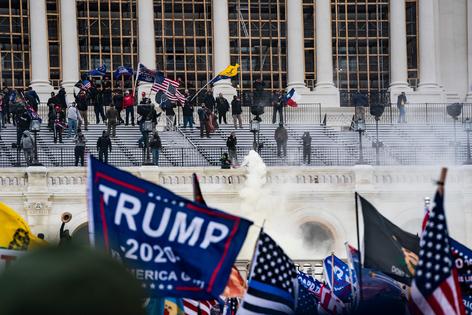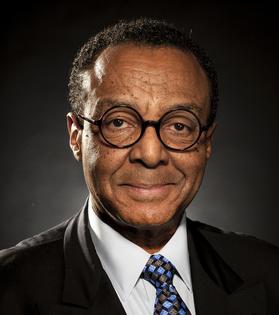We Have a ‘Domestic Terrorism’ Double-Standard Problem
To paraphrase the great sage Samuel Johnson, nothing concentrates the mind of a member of Congress like the prospect of being hanged in a mass assault on the U.S. Capitol.
And in a similar vein, nothing divides lawmakers — even in the same party — like the question of what to do after the domestic terrorism that put thoughts of being hanged on many minds, helped along by the actual gallows that some clown erected near the Capitol during the Jan. 6 insurrection.
Illinois Sen. Dick Durbin, chair of the Senate Judiciary Committee, and a bipartisan list of fellow lawmakers have revived the Domestic Terrorism Prevention Act, which originally passed the House last fall before it was blocked in the Senate by Wisconsin Republican Ron Johnson.
This time the bill appears to have even stronger support after the Jan. 6 insurrection in which lawmakers were witnesses and targets.
But, no, it’s not unanimous. New York Rep. Alexandria Ocasio-Cortez, a leading progressive Democrat in the subcommittee that investigated domestic terror laws, has long opposed writing new domestic terror laws when, as she puts it, the government hasn’t used enough of the laws it already has at its disposal.
“Our problems on Wednesday,” she tweeted three days after the Capitol attack, “weren’t that there weren’t enough laws, resources or intelligence. We had them, & they were not used.”
She’s not alone with that complaint. In a statement joined by more than 150 prominent civil and human rights organizations, the Leadership Conference on Civil and Human Rights raised serious objections about potential abuses, based on the checkered history of government efforts to root out subversion.
Among other examples, the coalition cites the erosion of due process in the immigration enforcement system in recent years and the USA Patriot Act, enacted after the Sept. 11, 2001, terrorist attacks, which led too often to a climate of fear and hostility against anybody who looked Arab or Muslim.
The late FBI Director J. Edgar Hoover, who infamously targeted Black activist Marcus Garvey in 1919, also created the project COINTELPRO in the 1960s. Among other abuses, it led to harassment of Martin Luther King Jr. and the assassination of Illinois Black Panther leaders Fred Hampton and Mark Clark in 1969. That atrocity, depicted in the new movie “Judas and the Black Messiah,” led to hefty legal settlements for the two victims’ families and a sullying of the FBI’s reputation that still harms its image in Black communities.
Yet we seemed to have learned nothing as a nation, considering the FBI came up with a new domestic terrorism category called the “Black identity extremist” in 2017 during the rise of Black Lives Matter, based on shaky evidence.
Only eight years earlier, when a Department of Homeland Security report warned that military combat veterans could be vulnerable to recruitment by extremists, furious backlash from conservatives forced then-DHS Secretary Janet Napolitano to apologize. Based on what we’ve learned since Jan. 6, she is owed an apology.
Yet, as awful as past abuses have been, we still have gaps in our pursuit and prosecution of domestic terrorism that need to be closed, without creating new avenues for abuse. Domestic terrorism is an indisputable danger. The very existence of a racial double standard creates a blind spot that focuses attention on activists of color while giving white supremacists, armed and unarmed, an undeserved pass.
We’ve seen renewed efforts in the past to investigate violent hate groups here at home as aggressively as we go after overseas-based terror groups such as al-Qaida or the Islamic State. We saw a similar big push in that direction after mass shootings in El Paso, Texas; Gilroy, California; and Dayton, Ohio.
But talk of domestic terrorism also triggers an odd alliance between peaceful gun enthusiasts and civil libertarians who are understandably concerned about constitutional rights. Any revamping of counterterrorism laws must be done with the main concern of the Bill of Rights in mind: protecting the rights of individuals from unnecessary government intrusions.
Yes, there is an irony in civil libertarians’ concerns for the rights of white supremacy groups that come together to take rights away from other groups. But such ironies inevitably go along with the need to treat everyone with fairness, even when they don’t always want to be fair to you.
========
(E-mail Clarence Page at cpage@chicagotribune.com.)
©2021 Clarence Page. Distributed by Tribune Content Agency, LLC.
(c) 2021 CLARENCE PAGE DISTRIBUTED BY TRIBUNE MEDIA SERVICES, INC.










